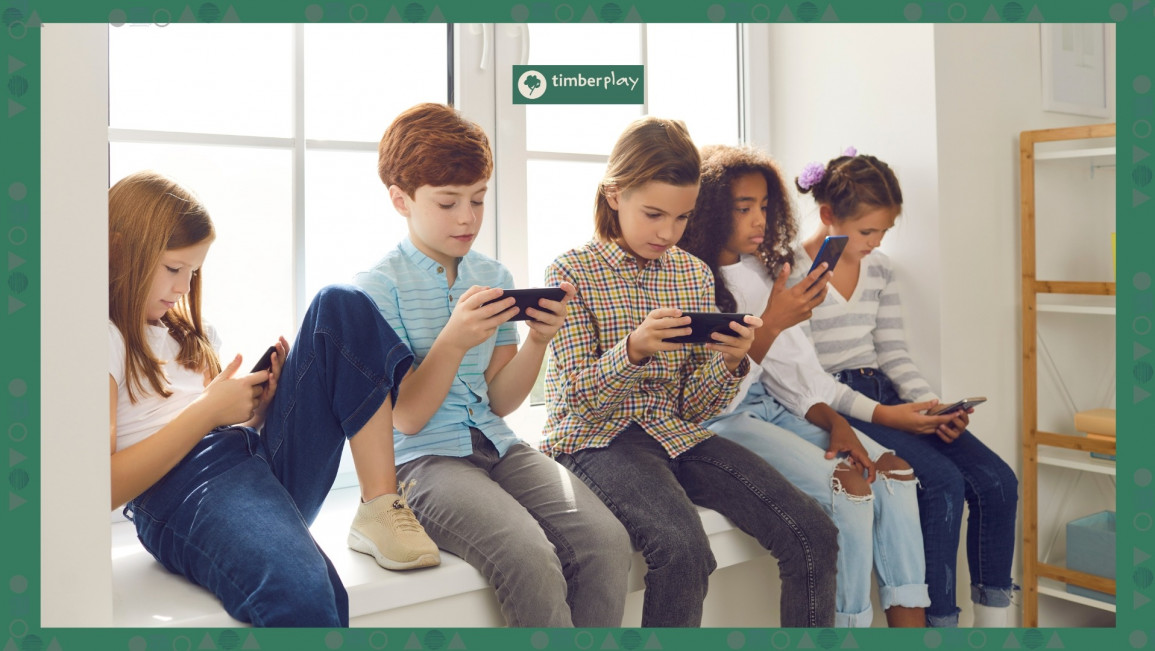Today In Play
Reclaiming Play in a Smartphone World
Smartphones are a defining part of childhood today – but what does this mean for play?
In this thought-provoking piece, Beth Cooper invites us to sit with the complexity of that question. Rather than providing easy answers, Beth explores the ways in which smartphones and screen use are shaping children’s social, emotional, and physical landscapes – and what this might mean for their play.
👉 Read the article below and start thinking about the questions you’d like to explore during the upcoming webinar.
I Don't Have The Answer, Maybe I'll Google It...
'In the world of play there has been increasing concern about restrictions on children’s free roaming and their access to play. The dominance of the car has changed the environment in which children access play in a bodily way. In the same way the smart phone is becoming dominant in the social and cerebral environment of the child.
In the long history of human existence, it’s a very recent phenomenon. Smart phones came into being in the mid 1990’s and became ubiquitous in the late 2000’s. There are more people discussing this topic who did not grow up with smart phones than the numbers of emerging late teens and young adults who have not known a world without them. This clearly influences the questions about the impact on play when they come from an analog mind with very different play memories. I feel there are more questions than answers at this point. Here are some that I have.
Play is fundamental to children’s lives. Through play children use their bodies, move and explore their capabilities and limitations. They develop fine and gross motor skills through the wide range of movements that playing offers. We already know that there are increasing concerns about the state of children’s physical health from movement decline. There are anecdotal tales of delayed development of children reaching school age, particularly in their fine motor skills. What is the impact of constantly holding a phone or being static whilst focussed on a phone. Is the smart phone partly to blame for these concerns?
When we discuss smart phones what is it that we even mean? Is it the object itself, the pressure of being in charge of a potentially expensive item, the physical impact of holding a rectangle the hand was not evolved for? Is it that a part of your awareness is permanently asking “where is my phone?”. Can we really be emersed in play while we worry about this?
Smartphones offer a gateway to a galaxy of content. This may or may not be age appropriate. Social media platforms enable multiple interactions, but they can be cruel and critical. The scrolling mechanism holds us in statis and the developer Aza Raskin openly regrets the impact of his creation. Games that are accessed through the smart phone offer a reward response that the ‘real world‘ cannot match? Can this increased access be a good thing? In balance with other forms of play that are an antidote to that digital immediacy are children having a more enriched play experience? Or is it too much too soon?
Emotionally and socially children develop through play with opportunities to explore and express emotions. In play you can mess up socially and develop resilience through that. What is the impact then of making a mistake with global reach? Or having a world of people able to comment and criticise, removing the opportunity to make mistakes in safety? What are the implications of constant dopamine and adrenaline release into the brain’s chemistry? Is there a causal link between this and the 500 children in the UK referred every day to the NHS for anxiety as reported in the Guardian in August 2024?
I once heard someone refer to digital play, which is one of the offers of a smart phone as ‘playing in someone else’s imagination’. The creativity of play is a joy in the moment but also helps build flexible and adaptable brains. It helps us problem solve. What impact then in removing some of the processes of developing creative thinking? Or is that just being a fuddy duddy and having the same generational fear response that some people felt about the gramophone?
Clearly there are some positive aspects of smart phone technology, access to new worlds of information, accessibility apps, connection to those who are geographically distant and communication for children who may find direct socialisation overwhelming. But the holistic nature of play, engagement and interaction with the environment around them and the way in which it offers opportunity to socialise and explore is markedly different body to body than through the screen. Play offers the opportunity to test boundaries and develop resilience. It gives immediate feedback but at a speed that is in tune with the child. It allows children to use their voices, hands, bodies, minds and soul.
I am not anti-smartphone. I am pro-play. The one question I do not have is of the inordinate value of play. I believe that play can be the antidote to many of the issues raised here and more. Smart phones are here to stay for the time being but let’s not allow them to be a barrier to opportunities to play in the real as much as we can.'

